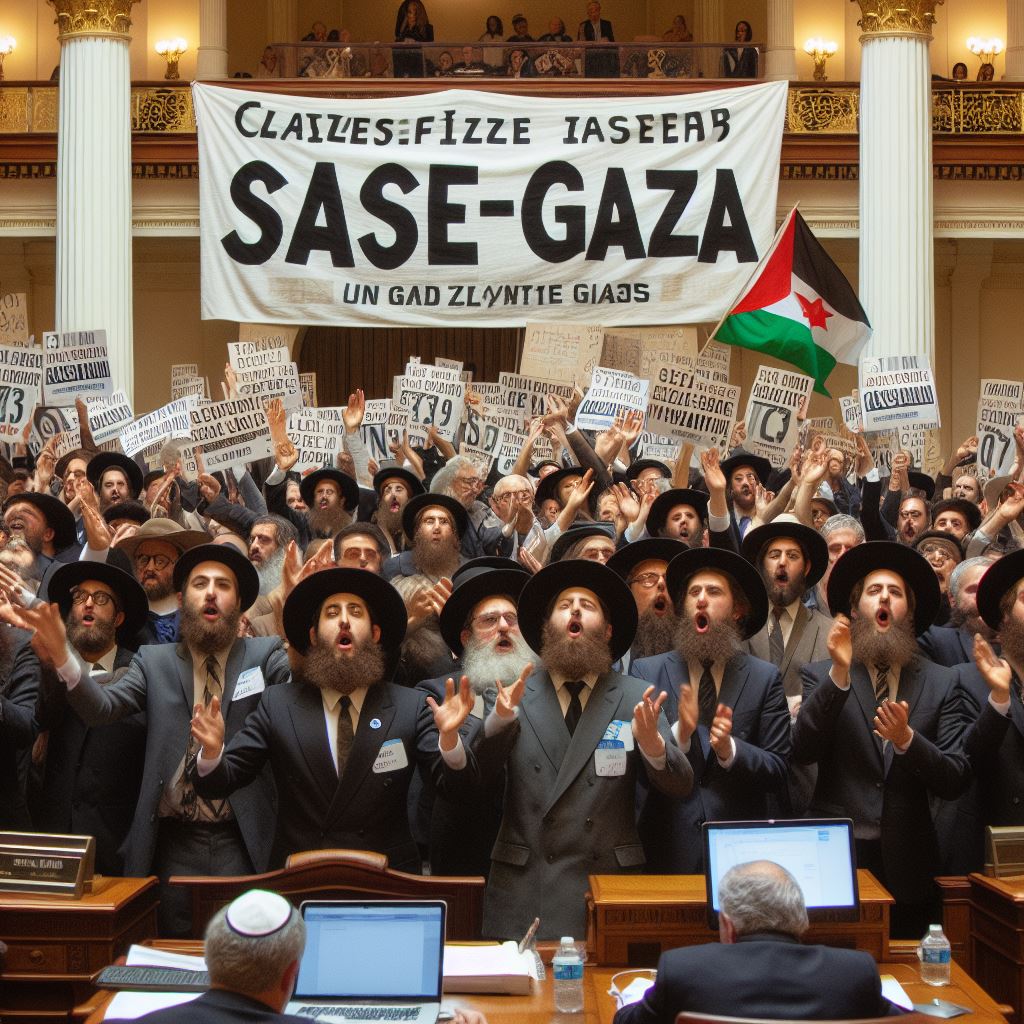
Sacramento, Calif. (AP) – The first day of California's legislative session was interrupted by hundreds of protesters calling for a cease-fire in the Israel-Hamas conflict. The disruption occurred just moments after the state Assembly convened, with protesters wearing black shirts and singing slogans like “Cease-fire now” and “Let Gaza live.”
A few individuals unfurled banners in the chamber's gallery reading: “Jews say never again for anyone.” Democratic Assemblymember Jim Wood attempted to continue the session, but eventually called for a recess, and the Assembly adjourned shortly after.
Protesters, many associated with groups like Jewish Voice for Peace and IfNotNow, urged lawmakers to join them in demanding a cease-fire. Assembly Speaker Robert Rivas' office declined to comment, while Republican Assemblymember James Gallagher expressed frustration, stating, “We can’t let them shut us down. We have to go about our business.”
The protest, organized by various groups, aimed to draw attention to the conflict. Binya Kóatz, a Jewish teacher and artist, highlighted the responsibility of Americans to disrupt regular activities while the U.S. supports Israel. Kóatz stated, "Getting this body to call for a cease-fire now can put California at the forefront of the national movement."
This is not the first time such protests have occurred in California's capital. Similar disruptions happened in November, forcing the cancellation of some events during the California Democratic Party's nominating convention. Last month, Governor Gavin Newsom canceled an in-person Christmas tree lighting ceremony due to planned protests.
The state Senate was not disrupted during Wednesday's session. Across the country, several state capitols faced disruptions and evacuations due to bomb threats.
California's legislative session, scheduled until August 31, is expected to focus on artificial intelligence and a significant budget deficit. Despite the planned agenda, ongoing repercussions from the Israel-Hamas conflict are likely to impact proceedings.
The California Legislative Jewish Caucus called for a committee to explore policy changes protecting the Jewish community amid rising tensions. Lawmakers are set to return on Thursday, with a major focus on addressing the state's estimated $68 billion deficit.
With the state's prominence in the artificial intelligence sector, lawmakers are eyeing governance measures for the technology. State Senator Steve Padilla proposed safety, privacy, and nondiscrimination standards for generative AI tools, along with the creation of a state-run research center. Assemblymember Akilah Weber aims to address "deepfakes" through legislation requiring labeling on AI-generated content.